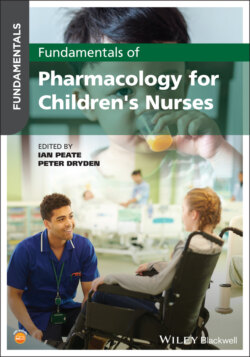Читать книгу Fundamentals of Pharmacology for Children's Nurses - Группа авторов - Страница 24
The Importance and Value of Medicine Within Healthcare
ОглавлениеIt has been identified that medicines are the most common intervention in healthcare and are used to prevent, treat and manage conditions and illnesses for people of all ages (National Institute for Health and Care Excellence (NICE), 2015). With the increase in technology and the increase in survival rates of premature births and complex health conditions, the need for medicines has increased. As with adults, more CYP are living with several long‐term conditions that are being managed with an increasing number of medicines. Medicine use can be complex and how patients can take their medicines safely and effectively can be a challenge for the health service (NICE, 2021).
The safety of administering medicines is imperative as healthcare professionals strive to ‘do no harm’. Despite this, it has been estimated that there are 237 million medication errors within England each year across all ages and areas of primary and secondary care (Elliott et al., 2020). It is also estimated from the same systematic review that 72% of errors have little or no harm on the patient and they are identified before the medication reaches the patient. The National Patient Safety Agency (NPSA) monitors medication errors across all aspects of the process and reports to the multidisciplinary team involved in medication management. The NPSA (2007) reported that 1 in 10 patients experience medication‐related errors somewhere in the process and that 41% of the most serious incidents that are reported are caused by errors in administration. Within the literature, it is considered that many errors are unreported and so the statistics available are not completely accurate.
